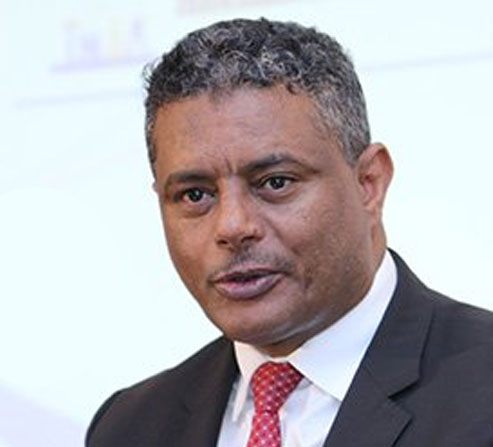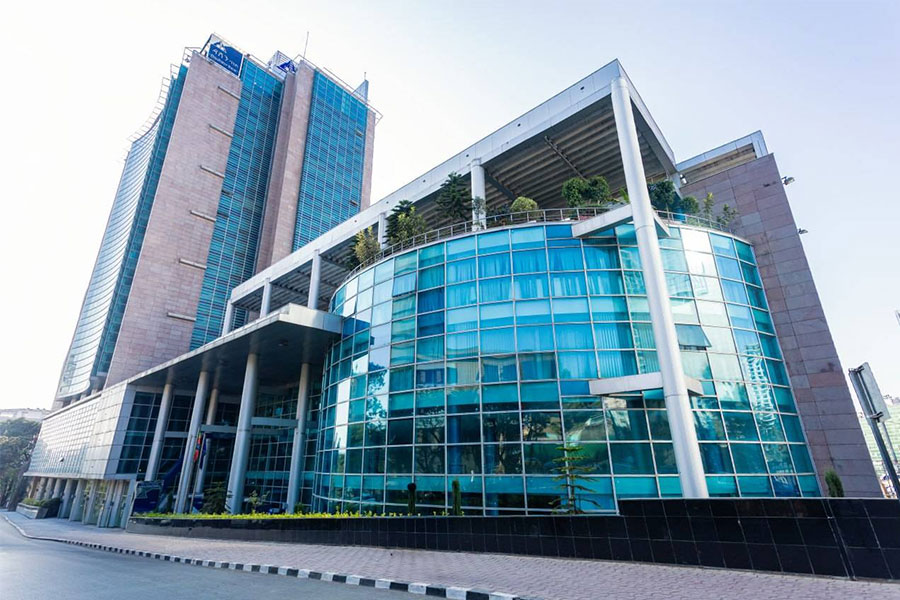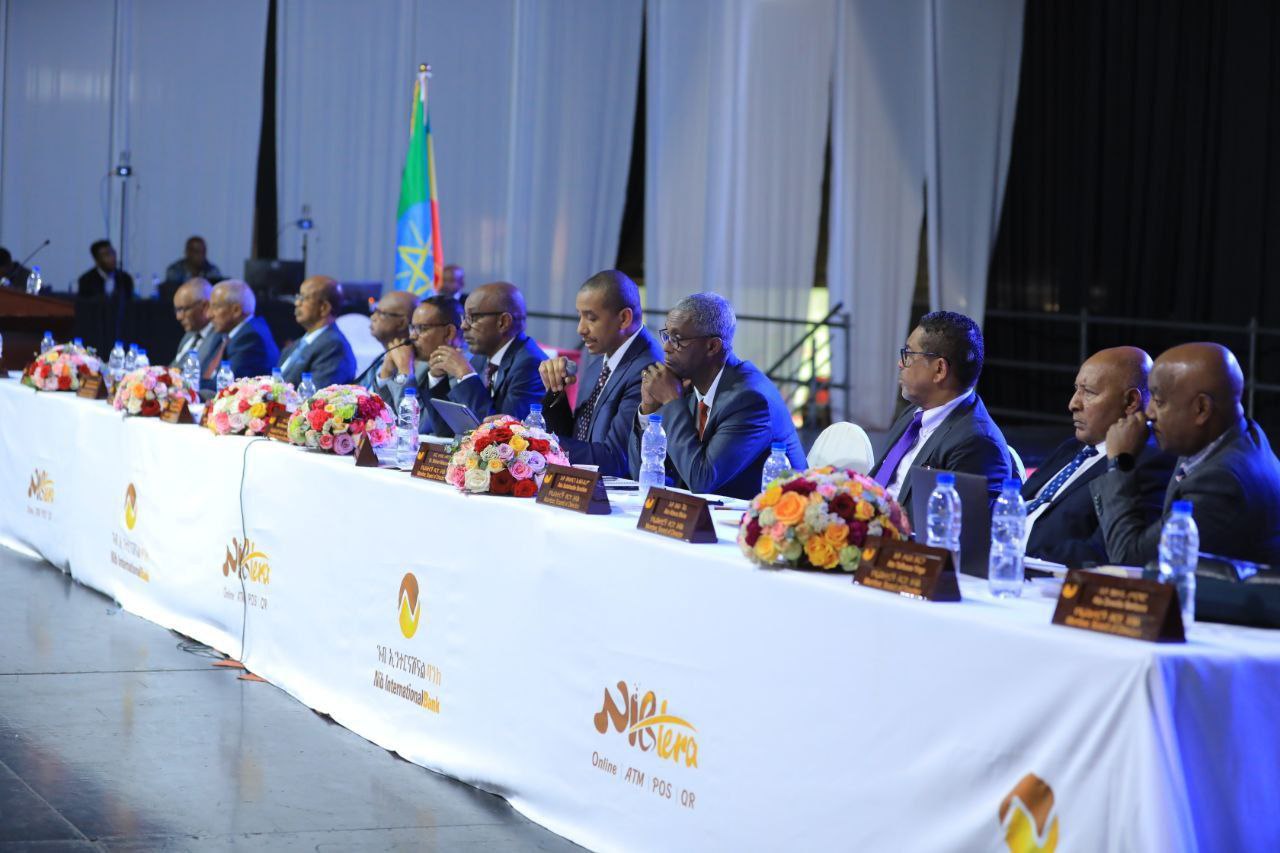
Radar | Jul 27,2025
Moti Engineering Plc, a banking and ICT solutions provider, secured a deal to supply 15 Interactive Teller Machine (ITM) to the Bank of Abyssinia for an estimated 65 million Br. The company has already supplied the Bank with five ITMs, aka "branch in a box" terminals, that provide virtual in-person banking services.
Moti was contracted for the project after passing through a two-and-half-month pilot run of the five terminals that went live last week in the presence of Yinager Dessie (PhD), governor of the National Bank of Ethiopia, Meseret Taye, board chairperson, and Bekalu Zeleke, president of the Bank. Four of the terminals are deployed at the premises of the United States Embassy, Tele Medihanialem area, Getu Commercial Centre and Century Mall.
Moti will supply the additional terminals within eight to 10 weeks of the contract award period. The Bank plans to install the new terminals at shopping malls.
The terminals, which use a combination of touch screens and technology to offer in-person banking services, make Bank of Abyssinia the first local bank to own and operate ITMs. The terminals enable customers to open an account, receive money transfers, deposit and withdraw cash, and perform local money transfers - services that had previously required customers to be physically present at a bank branch.
Manufactured by NCR, a global enterprise technology provider of software, hardware and services for banks, the terminals are the SS82 ITM model. Moti supplied the machines six months ago through a restrictive bidding process.
The Bank and the company have been carrying out the installation and testing process of the five terminals for the past six months, according to Sosina Mengesha, chief digital banking officer at the Bank, which netted 786 million Br in profit during the 2018/19 fiscal year.
Unlike automated teller machines (ATM), where only limited interactions are possible through a keypad, ITMs include a touch screen, buttons and a handheld phone providing direct access to a live bank teller. ATMs allow a maximum of 10,000 Br in cash withdrawals, but ITMs allow unlimited withdrawals.
The technology will help the Bank cut the expense of opening more branches and provides services without the physical presence of customers, which is especially helpful during the Novel Coronavirus (COVID-19) pandemic, according to Daniel Retta, manager of the Digital Banking Technical Team at Bank of Abyssinia, which procured the terminals as part of its five-year strategy that mainly focuses on digitising its operations.
"The terminals also allow customers to redeem old notes and receive the new currency bills," said Daniel.
In addition, the Bank is working on widening the coverage of ITM terminals first in the capital city and then in the regional areas, according to Elsabeth Gebru, the Bank's corporate communications manager.
"We'll also plan to enable customers to receive international money transfers through these terminals," she told Fortune.
Moti Engineering, which has been in business since 2006, operates with 450 employees and 11 office districts, 43 branch offices, a headquarters in Addis Abeba, and has so far supplied 150 ATMs to BoA, which started operations a quarter of a century ago with paid-up capital of 17.8 million Br raised from 131 shareholders.
It also sealed a deal with BoA to supply 3,000 ATMs in the coming three years and thus far supplied 6,300 ATM terminals to the 17 commercial banks.
All public and private commercial banks in the country operate about 5,000 ATM terminals and have issued more than 15 million cards. EthSwitch, a technology firm owned by a consortium of all banks established in 2011, launched the interoperability of ATMs four years ago, enabling cardholders to withdraw money from any terminal.
Card banking has been evolving over the past few years, according to Ibrahim Dawud, a certified card banker with over two decades of experience in the industry. He says that it was started with the terminal that allowed cash withdrawals, then deposits and foreign currency exchange services, and most recently non-card transactions.
"The latest ITMs are customer-centred and address customer needs," he said. "These days people are busy and need fast service at their convenience."
However, the Bank might face three major challenges, according to Ibrahim. He lists awareness of some customers in using these terminals, weak internet connection, and the location of the terminals far from branches as challenges Abyssinia could face.
"The first five terminals could have been deployed close to branches to enable bank staff to assist customers wherever they face difficulties," he said.
Even though digitising services could threaten existing jobs, it will also create job opportunities for those in different fields, according to Ibrahim.
"The Bank could hire workers who will work on help desks, technicians and companies that deploy these machines," he said.
PUBLISHED ON
Sep 27,2020 [ VOL
21 , NO
1065]

Radar | Jul 27,2025

Fortune News | Oct 03,2020

Radar | Jun 26,2021

Radar | Jun 21,2025

Fortune News | Mar 28,2020

Fortune News | Feb 05,2022

Radar | Oct 26,2025

Radar | Jun 07,2020

Radar | Jun 22,2024

Radar | Apr 03,2021

Dec 22 , 2024 . By TIZITA SHEWAFERAW
Charged with transforming colossal state-owned enterprises into modern and competitiv...

Aug 18 , 2024 . By AKSAH ITALO
Although predictable Yonas Zerihun's job in the ride-hailing service is not immune to...

Jul 28 , 2024 . By TIZITA SHEWAFERAW
Unhabitual, perhaps too many, Samuel Gebreyohannes, 38, used to occasionally enjoy a couple of beers at breakfast. However, he recently swit...

Jul 13 , 2024 . By AKSAH ITALO
Investors who rely on tractors, trucks, and field vehicles for commuting, transporting commodities, and f...

Oct 25 , 2025
The regulatory machinery is on overdrive. In only two years, no fewer than 35 new pro...

Oct 18 , 2025
The political establishment, notably the ruling party and its top brass, has become p...

Oct 11 , 2025
Ladislas Farago, a roving Associated Press (AP) correspondent, arrived in Ethiopia in...

Oct 4 , 2025
Eyob Tekalegn (PhD) had been in the Governor's chair for only weeks when, on Septembe...